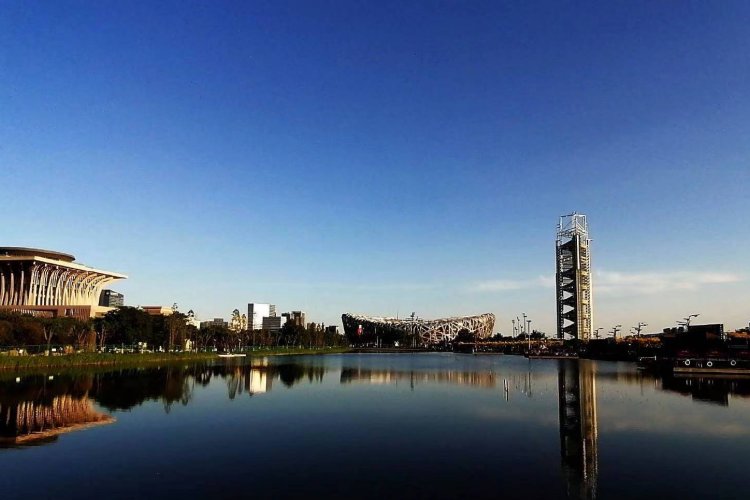The Beijinger's Policy on Avoiding Plagiarism
Last Sunday, a post containing material that was copied directly from another website was published on the Beijinger website.
An astute reader immediately recognized the connection and highlighted it in the comments section of the post.
Once we became aware of the transgression, the post was taken down and the writer was disciplined. We also scanned this writer's previous work for any other instances of plagiarism, and found none.
We wish to offer our sincerest apologies to the person whose work was used without attribution: Vanessa Menchaca and her Wanderonwards blog.
In the fast-and-furious world of blogging and social media where personal "sharing" – often without conscious attribution – is common, media outlets like ours need to be particularly diligent in making sure credit is always given where it's due, particularly as information moves to a social media-based model where ideas flow endlessly at the speed of light (or at least the speed of whatever glacially-slow internet connection you happen to use).
For the record, our policy on content that is sourced or inspired from elsewhere: If any material is excerpted directly from another source, quote the source just like you would quote an individual. Link to the original source if available online. When an idea for a story is inspired by a post from another site, attribute the idea to the source and link to it (even if we've written most of the story ourselves). Translation is also plagiarism if not attributed – when translating directly from Chinese, indicate as such and link back to the source.
I anticipate that vigilant users of this site may now search our archives in an attempt to uncover other errors in judgement or unattributed stories. I welcome such scrutiny as it helps keep us honest and on our toes for the future.
Though I can't guarantee archival perfection, I'm confident that our output of over 8,000 blog posts to date demonstrates our commitment to bringing you entertaining, informative and timely stories – most of them original, and when sourced from elsewhere, attributed appropriately.
True Run Media takes the issue of plagiarism seriously. We are currently reviewing how our editorial policies can be reinforced to ensure that similar incidents do not recur in the future.
Michael Wester
General Manager, True Run Media
Producers of the Beijinger
Image: Wikimedia Commons
Related stories :
Comments
New comments are displayed first.Comments
![]() britomart
Submitted by Guest on Fri, 01/24/2014 - 09:53 Permalink
britomart
Submitted by Guest on Fri, 01/24/2014 - 09:53 Permalink
Re: The Beijinger's Policy on Avoiding Plagiarism
I work at proofreading scientific manuscripts in Beijing. The level of plagiarism is terrible. But I have also come to realise that a lot of people just don't know or don't care, so I gave up checking for such plagiarism. People that should be clearly aware of what constitutes plagiarism don't really know what is/isn't permitted or how to do it properly, and when informed of it they don't think it's a big deal.
Yeah, it's pretty horrible. I've worked for a Chinese publisher for 11 years now; when I first came, nearly everything in our books was plagiarized (and I work for what's supposed to be the TOP educational publisher in the country--HA). It's been a long, slow painful fight here, but after the first few years, my colleagues understood the view of the international academic community toward plagiarism, and after a few more years, they not only understood but joined me in The Resistance, as I've come to think of it. (I'm the "modern Lei Feng" of my department, ha ha) And it IS a resistance... I can't count the number of books I've returned unedited, with a long list of page numbers, passage titles, and internet sites from which they were copied. It's the passive resistance combined with the "I really don't want you all to lose face if this is published" explanation that wins the day. Now when I get a book, the first thing I do is a quick scan to see if my internal plagiarism sensor goes off, and then a quick google/dogpile search to confirm whether I was right. If I find something, then I pull out the fine tooth comb and start compiling a list of plagiarized texts/dialogues and the sources. Those lists are absolutely essential; my colleagues have no authority to argue with the bosses armed simply with "the foreign editor says", but when they can provide a physical list, giving sources such as CNN or the BBC or VOA, that gives the bosses pause. You just have to do it over and over, and over, and over... They'll get the idea eventually that you're not going away, that you're not backing down--and that you're not doing it to be nasty, but rather that you're just doing the job that they hired you for... helping them look good in the eyes of the international academic community. It's a long process of education--and really comes down to whether you're going to give up thinking it's useless and give in to the pressures to let them use you as the foreign editing monkey to put a stamp of credibility on something that's crap... or whether you start that passive resistance, smiling oh-so-nicely the whole time as you pass back unedited manuscripts with lists of plagiarized content/sources.
And, of course, there's always the tack that another editor friend of mine takes; when she does freelance editing, she'll give the Chinese publisher a few months to a year of "grace", informing them of the plagiarism she finds and giving them a chance to correct it. After that grace period, she'll just start contacting the original copyright holder directly to tell them the name of the Chinese publisher who's stealing their work. Whether you try my "educational approach" or the "whistle blower approach", choosing to do something is truly one of the kindest things you CAN do for those pathetic authors trying to pass off others' material as their own. The Chinese are trying to reach international standards, academically speaking anyway, but they'll never get there if they're allowed to follow their "traditional Chinese approach" to publishing.
![]() admin
Submitted by Guest on Thu, 01/23/2014 - 14:21 Permalink
admin
Submitted by Guest on Thu, 01/23/2014 - 14:21 Permalink
Re: The Beijinger's Policy on Avoiding Plagiarism
^ Like I mention above, I anticipate that vigilant users of this site may now search our archives in an attempt to uncover other errors in judgement or unattributed stories. I welcome such scrutiny as it helps keep us honest and on our toes for the future.
![]() BumbleBeeTou
Submitted by Guest on Thu, 01/23/2014 - 13:36 Permalink
BumbleBeeTou
Submitted by Guest on Thu, 01/23/2014 - 13:36 Permalink
Re: The Beijinger's Policy on Avoiding Plagiarism
Can the same be said for your 'policy' on using other peoples photos, Admin?
yes, poilcy is to use our own or link back to the source when we use others
Let's hope your staff actually bother following it in the future, then. Too many times now, your editoral team has said "Oh, we stole a photo? Guess that was the interns fault...."
![]() vanessaelizabeth
Submitted by Guest on Thu, 01/23/2014 - 12:59 Permalink
vanessaelizabeth
Submitted by Guest on Thu, 01/23/2014 - 12:59 Permalink
Re: The Beijinger's Policy on Avoiding Plagiarism
Aw thanks for the shoutout Beijinger! No worries and thanks for the extra press :]
Vanessa
![]() Colin Mc
Submitted by Guest on Thu, 01/23/2014 - 12:35 Permalink
Colin Mc
Submitted by Guest on Thu, 01/23/2014 - 12:35 Permalink
Re: The Beijinger's Policy on Avoiding Plagiarism
I work at proofreading scientific manuscripts in Beijing. The level of plagiarism is terrible. But I have also come to realise that a lot of people just don't know or don't care, so I gave up checking for such plagiarism. People that should be clearly aware of what constitutes plagiarism don't really know what is/isn't permitted or how to do it properly, and when informed of it they don't think it's a big deal.
![]() admin
Submitted by Guest on Thu, 01/23/2014 - 12:06 Permalink
admin
Submitted by Guest on Thu, 01/23/2014 - 12:06 Permalink
Re: The Beijinger's Policy on Avoiding Plagiarism
Can the same be said for your 'policy' on using other peoples photos, Admin?
yes, poilcy is to use our own or link back to the source when we use others
![]() BumbleBeeTou
Submitted by Guest on Thu, 01/23/2014 - 11:57 Permalink
BumbleBeeTou
Submitted by Guest on Thu, 01/23/2014 - 11:57 Permalink
Re: The Beijinger's Policy on Avoiding Plagiarism
Can the same be said for your 'policy' on using other peoples photos, Admin?
Validate your mobile phone number to post comments.






